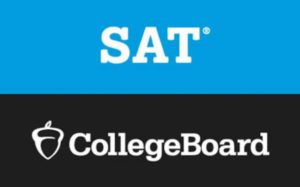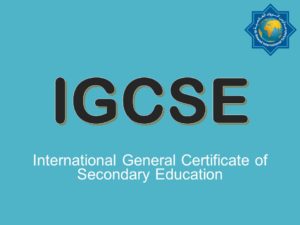Curriculum Overview

Al-Rowad International School (AIS), offers both American and British curriculums. Starting ninth grade, students will be eligible to enroll for either of the mentioned curriculums, in which they will decide which route of enrollment by the end of the eighth grade.
The American curriculum is characterized by applying the Common Core State Standards (CCSS) and Next Generation Science Standards. This approach will grant students with either a high school diploma or an advanced high school diploma. CCSS is a state-led initiative that is coordinated by the National Governors Association Center for Best Practices (NGA Center) and the Council of Chief State School Officers (CCSSO). These standards promote the knowledge and skills that students need within their K-12 education careers, in order to pursue and apply to an entry-level, creditable academic college or certified workforce/workshop training programs.
The Standards:
Our standards align with college and workplace expectations and requirements, in which graduate students will be competent to pursue either route. Our standards are comprehensive and consistent, which include exposing students to rigorous content and ensuring their ability to integrate application of the learnt knowledge through high-order skills. Our standards build upon strengths and lessons that are aligned with the current state’s standard. In addition to that our standards are considerate of the top performing, when integrating our curriculum to ensure students are fully prepared to succeed in our society. Our standards are evidence-based, which justifies how and why protocols are followed.
The CCSS is designed to prepare and empower students with the necessary skills and knowledge, which are required for higher education or advanced careers.
The Next Generation Science Standards (NGSS) content is focused on preparing students for college and career applications. The NGSS are aligned with the English Language Arts and Mathematics Common Core State Standards, which are based on grade score levels and student’s cognitive capabilities. NGSS allows students to be experienced in both science and other areas of study, to be a part of their comprehensive education process. All of the above mentioned standards are conveyed to have profound effects on student’s overall performance and competence, which overlap between one another to ensure students are ready for the next step, upon graduating.
Using a credit system is utilized to award students with credits from a wide foundation of general education courses. These courses include a range of topics, such as Algebra I and II, Geometry I and II, Calculus) English Literature, English Language, ICT, French, Arabic, Biology, Chemistry, Physics, World History, KSA History and P.E.

The school system is designed to prepare students for their SAT I and II. There is an available program that starts at the beginning of the ninth grade and ends upon graduation at the twelfth grade. Students are registered by the school at the end of grade eleven for the SAT I examination, and at the end of grade twelve for the SAT II examination. AIS is recognized as one of the registered centers for SAT examinations, which makes the applying process easier for local students.
The SAT I is a comprehensive exam that is given several times a year. This exam is broken up into three parts: critical reading, math and writing.
The SAT is offered seven times a year: in October, November, December, January, March (or April, alternating), May, and June. The test is typically offered on the first Saturday of the month for the November, December, May, and June administrations.

The British curriculum also starts at the ninth grade and ends at the twelves. This curriculum teaches and prepares students to take the Cambridge International General Certificate of Secondary Education (IGCSE) examination by the end of the tenth grade. IGCSE is considered to be the most popular international qualification for students aged 14 to 16 year olds. It is recognized by leading universities and employers worldwide, which can act as an international passport to progression and success. The IGCSE is shown to offer a more flexible and cognitively stimulating curriculum, which is backed up by credible resources and training materials for all learners. The IGCSE is designed to help students build educational structures and skills that are lifelasting. This curriculum is shown to improve and promote student’s academic performance by enhancing their creative thinking, enquiry, and problem solving skills. IGCSE is shown to be the gold standard for advanced education, in which it offers a wide variety of courses such as Math, English as First and second Language, Arabic as first and Second language, Business, Biology, Chemistry, Physics, Accounting, ICT, Computer Studies and many more.
The IGCSE assessment takes place at the end of the course and includes a written and oral section in addition to a practical assessment. This assessment allows students to show their acquired competencies that are derived from their learning process. IGCSE provides students with the ability to choose from a wide range of courses based on their capabilities. Choices include picking courses that are core and elective. Grades are awarded using eight internationally recognised grades, A* to G, which have clear guidelines that explain the standard of student’s achievement for each grade. Cambridge IGCSE examination sessions occur twice a year, in June and November in which the results are issued in August and January. The school is a fully certified center that collaborates with the University of Cambridge international Examinations.
After completing the IGCSE courses, students can study up to 4 Advanced Subsidiary (AS) and Advanced level (A Level) courses offered at the school. The syllabuses prepare students for university level studies, which is the main reason as to why universities worldwide value and recognize Edexcel (educational and excellence) International AS and A Level qualifications. This is because these are the first step in providing access to a range of careers or further education. The AS and A levels have been used as a benchmark to judge student ability for more than 60 years.
The school offers the opportunities to AS and A level students to move into two streams, either the Art or Science stream. Once students have completed their IGCSE, they are asked to choose between one of the two main streams mentioned above. The Art stream offers a variety of subjects such as: English, Math, Economics, Accounting, Applied ICT and Business Studies. While the Science stream includes topics such as: Math, Biology, Chemistry and Physics.
Al-Rowad International Schools have been remarkable not merely in educating students in various academic subjects, but also in enriching their knowledge with our religious and ethical practices. Al-Rowad students have compulsory subjects in any of the two mentioned curricula that they choose, in addition to learning: Qur’an, Islamic Studies in Arabic (ISA), Islamic Studies in English (ISE) and KSA History. We should always remember what our prophet (PBUH) said: Prophet Muhammad (s) said: “Whoever reads the Qur’an before becoming Baaligh, has indeed been given wisdom as a child.” The Holy Book is the best intellectual treasure a student can have and refer to. Prophet Muhammad (s) said: “The Qur’an is a wealth with which there is no poverty, and without which there is no wealth.” On the other hand, not caring to read and study the Qur’an is a great loss. As Prophet Muhammad (s) said: “Surely the person in whose heart lacks the trace of the Qur’an is like a ruined house.”
Students go beyond the textbooks material to study complex topics, which are based on real-world issues. These topics include areas of study such as the Ecology in Riyadh, Islamic History, and Effects of Chemicals on animals, etc. This is accomplished by analyzing information from multiple sources including the internet and interviews with experts. Project-based classwork is more demanding than traditional book-based instruction. Since traditional book-based instructions only focus on a single resource of information, rather than multiple, hence not giving students a more well rounded understanding on a topic. Instead, students utilize original documents and data, mastering principles covered in traditional courses in addition to learning them in more meaningful ways. Projects can last for weeks; multiple projects can cover entire course material. Student work is presented to audiences that are beyond the teacher, including parents and community groups.